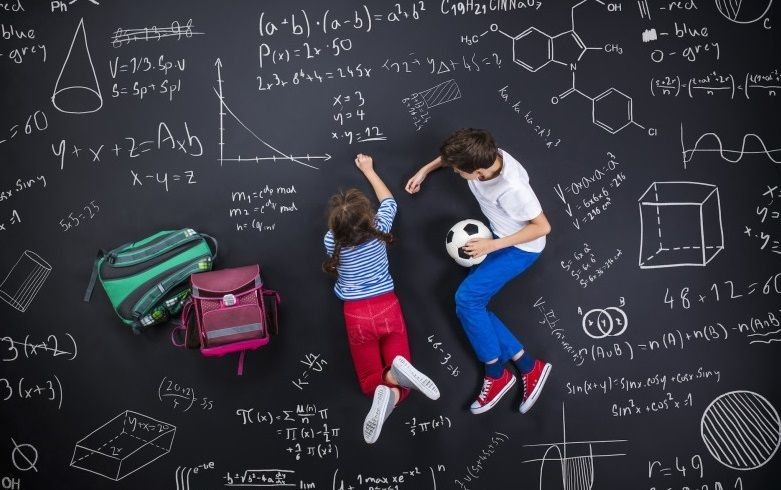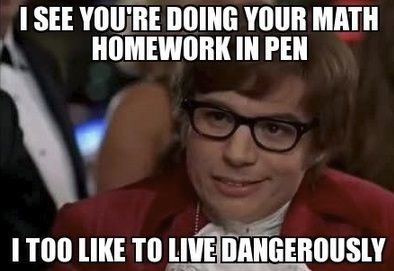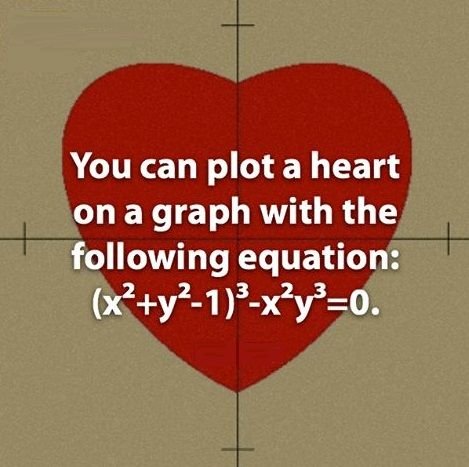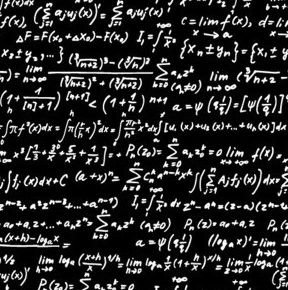It is well known that mathematics is a skill most needed by all, for they are the main tool with which human beings have been able to understand the world around us all. When we are students, it is common for us to ask ourselves why should I study mathematics? We could start by saying that there are many activities of everyday life that relate to this science, for example, managing money, preparing a cooking recipe, calculating the distance we must travel to get somewhere, among other things, but actually the response goes further.
Mathematics must be integral part of our everyday life ..make it fun ..

It is difficult to find a completely comprehensive definition of the concept of mathematics. At present, it is classified as one of the formal sciences (along with logic), since, using as a tool logical reasoning, the analysis of relations and properties between numbers and geometric figures we see they are all intertwined.
Learning math teaches us to think in a logical way and to develop skills for problem solving and decision making. Thanks to them we are also able to have greater clarity of ideas and the use of language. With math, we acquire life skills and it is difficult to think of any area that has nothing to do with them. Everything around us has a little of this science.
Numerical skills are generally valued in most sectors, with some being considered essential. The use of statistics and effective probability is critical for a wide variety of tasks such as costing, risk assessment and quality control, and modeling and problem solving. There are those who argue that in the current changing world we live in, particularly in terms of technological advances, the demand for mathematical knowledge is increasing.
Technology requires great deal of math know-how; a science that must be done right the first time with no risks of failure (what if the calculations for a bridge fail ...real life bridges come down because of this)

Mathematics is crucial to the economic development and technical progress of a country, allowing it to remain competitive in the world economy. Innovation and growth are based on cutting-edge research and investment. To satisfy the competitive ambitions of a knowledge-based economy, conventional mathematics and science education are crucial.
A country requires professionals and scientists prepared to carry out the most demanding roles in the areas that are basic to its economic prosperity. Knowledge and mastery of mathematics are necessary for problem solving and decision making in virtually any industry.
Therefore, the importance of mathematics lies in its irreplaceable utility for the definition of relations that link objects of reason, such as numbers and points. However, modern mathematics exceeds simple numerical analysis and has advanced over non-quantitative logical parameters. In this context, its application to the computer in the current times is responsible for the technical advances that dazzle the whole world. Math is the science that must do with everything.
All in the universe, planets, galaxies, food, organs, flora can be duplicated and simulated with the use of math equations

Anyway, why is math important? Probably because they are necessary in many other fields of study. They are used, for example in hard sciences like biology, chemistry and physics; in soft sciences such as economics, psychology, and sociology; in the field of engineering as in the case of mechanics, civil or industrial; in the technology sector are used when programming mobile devices or computers, as well as for telecommunications; they even have applications in the world of the arts as in the case of sculpture, music and painting.
All nature has a mathematical logic in great proportion. According to Pythagoras, everything is governed by numbers and mathematical forms. This science, besides being logical and exact, is also strongly related to beauty, through aesthetically pleasing proportions, as in the case of the theory of the golden ratio proposed by Leonardo Da Vinci in the Vitruvian Man, or The Fibonacci sequence, which has applications in many aspects of nature.
Unlike other sciences, cardinal knowledge in mathematics does not require demonstration through scientific and reproducible experimentation, but through logical demonstrations based on ideas which, in turn, do not need to be demonstrated (axioms). However, many theorists conclude that experimentation is part of the formulation of certain reasoning, so that these processes cannot be excluded from conventional research in pure mathematics.
The branches of mathematics include the traditional arithmetic (dedicated to the study of numbers and their properties), algebraic calculation, set theory (applied dynamically to computing), geometry, trigonometry and mathematical analysis.
For many of us, mathematics can be difficult and demanding. The truth is that they are always present in our lives and depend on them to continue understanding the world and contribute to improve it day by day. In this way, it reaches levels such that it is not possible to conceive of human civilization without considering this science in the everyday context. The application of mathematics is perceived in the totality of human acts, even from the first months of life. To a lesser or greater extent, many scholars argue that ignorance of the fundamental elements of mathematics is defined as a form of illiteracy, while emphasizing the importance of its simplified teaching at all levels of education.
With educational current systems changing every day, there will be a time in the near future that understanding all of this gibberish and making sense of it will be a piece of cake !!

On the more human side, mathematics is fundamental for the intellectual development of children, helps them to be logical, to reason reasonably and to have a mind prepared for thought, criticism and abstraction.
Mathematics shapes attitudes and values in the students as they guarantee a solidity in their fundamentals, security in procedures and confidence in the results obtained. All this creates in the children a conscious and favorable disposition to take actions that lead to the solution of the problems that they face each day.
In turn, mathematics contributes to the formation of values in children, determining their attitudes and behavior, and serving as patterns to guide their life, such as, a style of facing the logical and coherent reality, the search for accuracy in results, clear understanding and expression through the use of symbols, abstraction, reasoning and generalization, and the perception of creativity as a value.
We can divide these values into two groups:
Values of intelligence: eagerness to know, acquire knowledge, study, habits and techniques of intellectual work to use information, critical sense of truth.
Values of the will: Capacity for decision (prudence, prediction, initiative, security, self-confidence); Moral values: respect for others' beliefs and ideas, collaboration, solidarity, honesty, honesty, Industriousness, optimism.
However, in college, the math subject is usually by far the most hated … because? We seem to realize that mathematics has been teaching itself for years. It is necessary that from the school a positive idea of the mathematics is transmitted and for that it is necessary to change the way in which they are presented to the students. And this might the subject of another conversation as current systems tend to impose rather than instill research and investigation creative and ordinality (the order of things); the time to change cannot be long.
In Pakistan children via the use of new "learn math tactics" , unknowingly, learn math, apply math, practice math and like math with games and fun.

References:
https://opinionator.blogs.nytimes.com/2011/04/18/a-better-way-to-teach-math/
http://theconversation.com/the-common-core-is-todays-new-math-which-is-actually-a-good-thing-46585
http://www.mathopenref.com/pythagoras.html
http://akshara.org.in/
http://www.npr.org/2011/03/05/134277079/the-way-you-learned-math-is-so-old-school
https://math.stackexchange.com/questions/302023/best-sets-of-lecture-notes-and-articles
http://www.universityaffairs.ca/features/feature-article/how-to-teach-math/
https://leonardodavinci.stanford.edu/submissions/clabaugh/history/leonardo.html
Are you into this type of topics, plus others like science, technology, human state, politics? Keep the conversation alive …. UPVOTE & perhaps, RESTEEM, and in addition you might want to click on the FOLLOW for further interesting posts. I do appreciate your comments,
